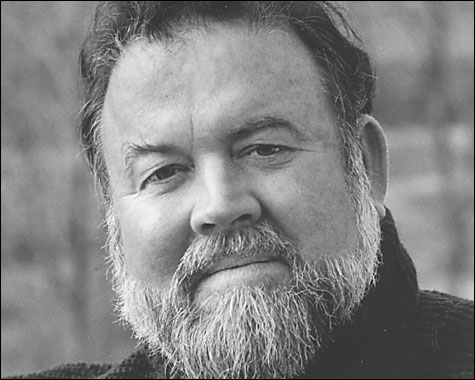
need to provide and protect. |
On the train back from New York City late last fall, I held a collection of Andre Dubus’s short stories, a recent gift from a beau. Walking out of a Cambridge bookstore not long before, he had said, “I got you something,” with that mix of pride and nerves that comes with passing along something that you love to someone else, and handed me a copy of Dubus’s Selected Stories. I knew the name — a local guy, Haverhill, it turned out, and the father of novelist Andre Dubus III. But I didn’t know the elder Dubus’s work. So on the train, I started a novella called Rose. And when the violence and emotional heat in that story reached their peak, I put the book on my lap and looked out the window at the passing coast — small bays and crowded harbors and the shadowed backs of old brick buildings, this, around November, when New England’s bones start to show — and I realized my heart was beating faster. The story had quickened my pulse.As I read more Dubus, special-ordering his story collections from his longtime Boston publisher, David R. Godine, I started to feel for the author as I did for another artist, painter Andrew Wyeth. The two have much in common: realists who believe in ghosts, and who, in their art, grapple with mortality, intimacy, the minutiae of domestic life — dishes in the sink, geraniums on the window sill. Their work is somber but not joyless, sad but not maudlin, controlled but never dispassionate.
But it’s how they portray women that attracts me most. With his Helga portraits, Wyeth captures quiet, loneliness, defiance, confidence, connection. Dubus, even more so, has a way with women. He writes them in a manner that suggests a profound respect, especially for those characters who can only be described as housewives. He is never condescending, and always attuned to their specific complexities and pain. It was Anton Chekhov “who showed me that a woman’s soul has a struggle all its own, neither more nor less serious than a man’s, but different,” Dubus wrote in an essay, “Of Robin Hood and Womanhood,” in 1977. And his women do struggle (though that doesn’t sway me from wanting to be one of them).
 Topics
Topics:
Books
, Culture and Lifestyle, Media, Religion, More  , Culture and Lifestyle, Media, Religion, Books, Robin Hood, Richard Yates, Naomi Watts, Marco Polo, Andre Dubus, Pico Iyer, Less
, Culture and Lifestyle, Media, Religion, Books, Robin Hood, Richard Yates, Naomi Watts, Marco Polo, Andre Dubus, Pico Iyer, Less 